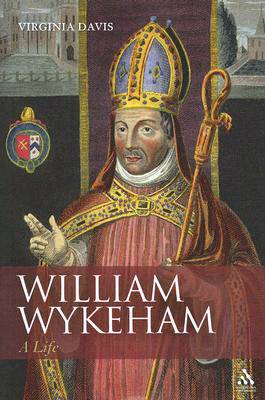
- Retrait gratuit dans votre magasin Club
- 7.000.000 titres dans notre catalogue
- Payer en toute sécurité
- Toujours un magasin près de chez vous
- Retrait gratuit dans votre magasin Club
- 7.000.0000 titres dans notre catalogue
- Payer en toute sécurité
- Toujours un magasin près de chez vous
356,45 €
+ 712 points
Description
William Wykeham was an extraordinary figure whose rapid ascent from peasant to chancellor bucked contemporary trends. Wykeham's administrative talents ensured that he became bishop of Winchester, holder of one of the richest sees in Christendom and Chancellor of England under Edward III and Richard II. "Everything was done by him and nothing was done without him" wrote the contemporary chronicler, Jean Froissart.
Spécifications
Parties prenantes
- Auteur(s) :
- Editeur:
Contenu
- Nombre de pages :
- 256
- Langue:
- Anglais
- Collection :
Caractéristiques
- EAN:
- 9781847251725
- Date de parution :
- 01-12-07
- Format:
- Livre relié
- Format numérique:
- Ongenaaid / garenloos gebonden
- Dimensions :
- 166 mm x 240 mm
- Poids :
- 544 g

Les avis
Nous publions uniquement les avis qui respectent les conditions requises. Consultez nos conditions pour les avis.






